
It's about cards. That game is Windows Solitaire, which from Windows 3.0 through to the Windows 10 of today has been (excluding a short break with Windows 8) included free with every copy of Microsoft's operating system.
Sure, there have been many other popular and important games included with operating systems over the years. Minesweeper will be many people's favourite. Others will prefer pinball games, or even the great versions of Tetris that shipped with older versions of Windows.
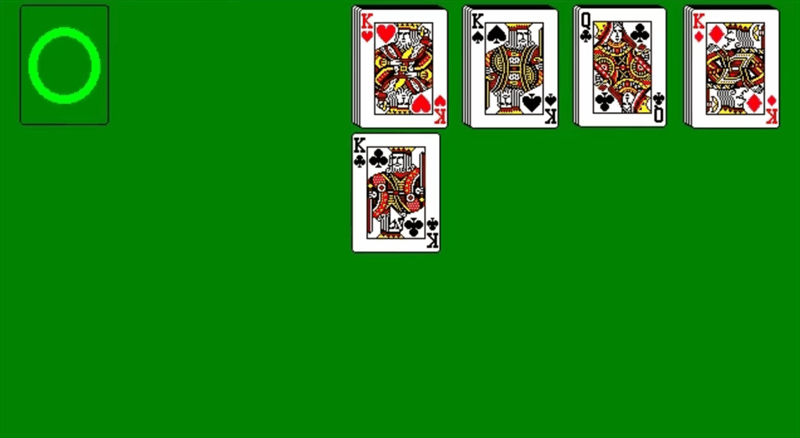
But only one game can lay claim to having once been the most-used Windows application in the world, as Microsoft's Chris Sells described Solitaire back in 2004. Considering the uncounted masses who use other Windows programs like Outlook, Word, Excel and Internet Explorer on a daily basis, both at home and in the workplace, that's a frighteningstatement.
Before we go any further, let's get something out of the way: the "Solitaire" included with every copy of Windows since version 3.0 of the operating system isn't actuallysolitaire. There's no such game. Instead, that's a term given to a whole family of card games which allow a single player to cut a deck and methodically work their way through by sorting them by colour and/or suit.
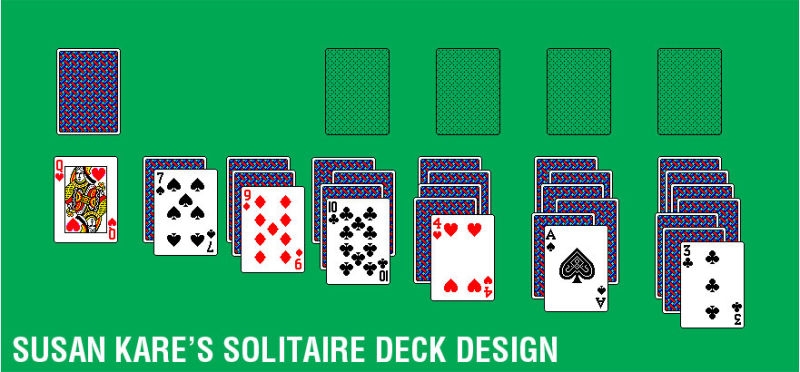
The card game most people associate with Windows and solitaire is but one of many variants of the game, in this case Klondike. It was first included with Windows in 1990, with a deck of cards designed by, of all people, Susan Kare, who is perhaps best-known for having also designed the original (and still iconic) Apple Macintosh icon family.
The game itself was coded by a Microsoft employee by the name of Wes Cherry. Even then, during the game's formative stages, Cherry knew the inherent potential (and dangers) for the game to become a workplace hit: he had originally coded a "boss key" into the game, which when pressed would instantly switch out the deck of cards with official-looking business, but Microsoft made him remove the feature before it was included with Windows 3.0.
Windows Solitaire, as it's officially known, has been continually upgraded since, with new decks, new graphics and new rules added over the years (Vista and 7's versions, for example, allow you to save an in-progress game). It's still available today with Windows 10, albeit with some...caveats.
FreeCell, another popular Windows card game, has a colourful past of its own; despite its relatively late inclusion with the all-conquering Windows (it wasn't included until 1995), it will be remembered as one of the first networked computer hits. Creator Paul Alfille put together a version of the game in the late 70s/early 80s that could support up to 1000 players at a time.
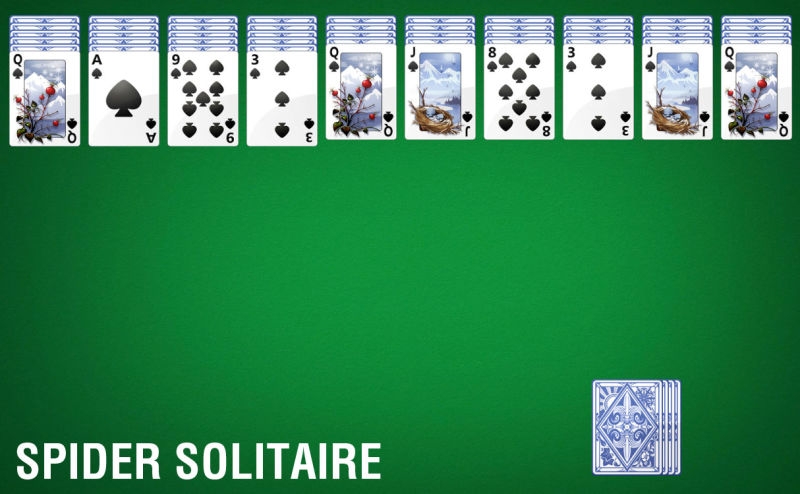
While Windows Solitairehas become almost synonymous with casual gaming and office time-wasting, Microsoft had a third, underlying reason for including the game with Windows: getting people comfortable with using both a computer and its own operating system.
It's easy to forget now, but back in 1990, Windows was still a fairly new concept for a lot of people. So was using a mouse. Heck, the personal computer itself was new to many folks who had grown up using pens, pencils and typewriters. With its simple presentation, bright colours and familiar subject matter, Windows Solitaire was the perfect way for Microsoft "to soothe people intimidated by the operating system" and get them comfortable with using a mouse to point and click on things.
And get comfortable they did.
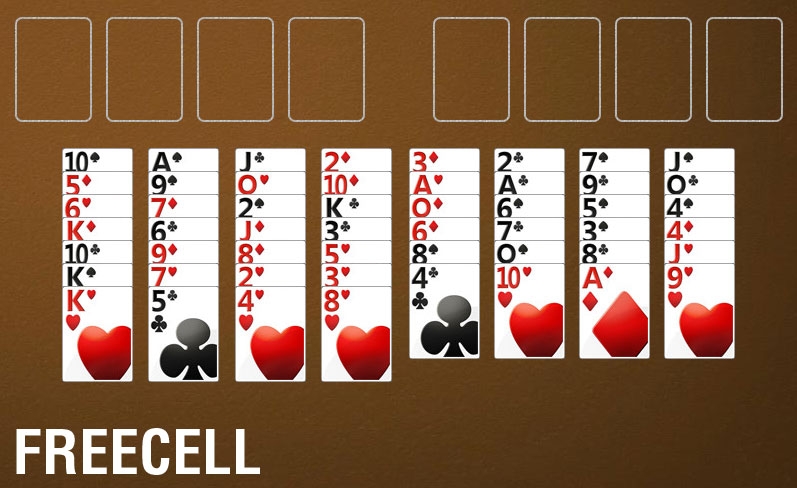
"Suppose a business said everyone on the sales force was getting a free deck of cards so that when they get bored they can play solitaire" systems manager Clifford Stoll told Time in 1998. "Not going to happen, right? But if you give everyone on the sales force a $2,000 computer, you know they're going to play some solitaire because it's the second or third most common program run."
You mention Solitaire and---after the amazing end-game card haze---the first thing that pops into your head is that it was once seen as the single biggest threat to office productivity facing this planet's workers. And in many regards, that's correct.
Most people who have worked in an office can testify to the lure of the game, and could name one or two colleagues who spent a little too much time cutting the decks when they should have been filing reports. Some even take it too far; in 2006, New York Mayor Michael Bloomberg famously fired a city employee he caught playing the game while at work.
This addiction can even spread beyond the workplace and into people's homes. My father has spent more time playing Freecell over the past decade than he has doing housework, for example. Things can get even worse for some: in 1996, Dr. Maressa Hecht Orzack opened the world's first clinic for computer addicts as a response to her own chronic Solitaire addiction.
Yet things aren't allbad for the humble little card game when it comes to the workplace. A University of Utrecht study from 2003 found that people allowed to play Solitaire while at work both improved their productivity and felt better about their jobs compared to those who were barred from playing. This was because if "rationed" correctly, a game of Solitaire functions much like a cigarette or toilet break, helping the employee take a short refrain from work, which refreshes them.
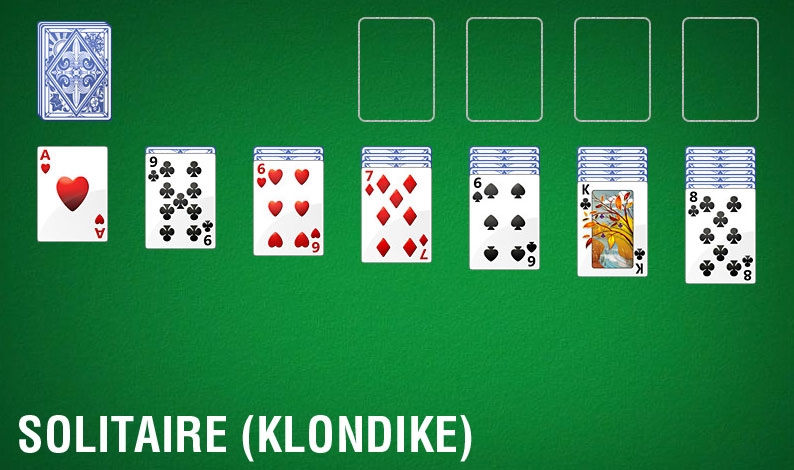
It's funny that for such a popular and important game, few people know the names of those involved in its creation. And those creators have seen little to no reward or recognition for their efforts. Kare displays her design work on her personal portfolio site, yes, but nobody has ever heard of Alfille and perhaps saddest of all, because the game is included "free" with Windows and because he coded the game as part of his regular work duties, creator Wes Cherry has said he has not received a cent for his troubles, despite Solitaire being one of the most popular video games of all time.
Just as sad is the fact that Solitaire's place atop the office time-wasting food chain has in recent years come to an end. Steam, the Xbox Store and Chrome Marketplace have eroded the need for Microsoft to rely on bundled software, while the population's increasing familiarity with computers, Windows and video games in general means folks are more comfortable playing more abstract, complex games in their downtime.
On that note, then, let's leave things on this rather poignant quote from Cherry, which puts into perspective the countless hours "lost" to the game over the last 25 years.
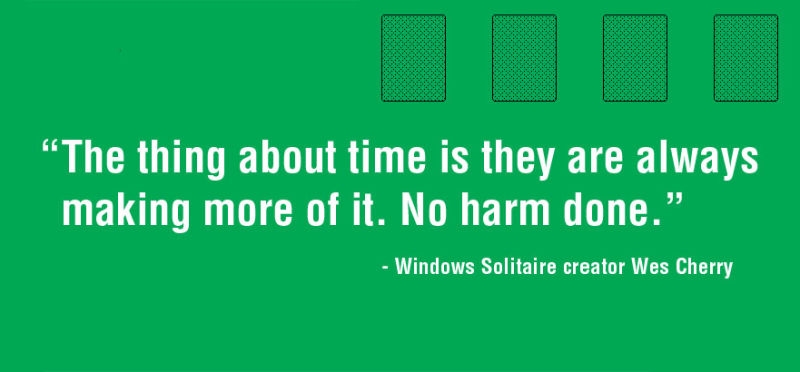
 Voices of Dissent in L.A. and Across the Nation
Voices of Dissent in L.A. and Across the Nation
 Faux-Pas at MOMA
Faux-Pas at MOMA
 World's longest penguin dive recorded by scientists in Antarctica
World's longest penguin dive recorded by scientists in Antarctica
 Elon Musk's new plan involves a rocket and a party balloon
Elon Musk's new plan involves a rocket and a party balloon
 Mizuho Sato to Mark 10 Years of Teaching Flamenco
Mizuho Sato to Mark 10 Years of Teaching Flamenco
 EPA will now classify wood burning as carbon neutral, except it isn't
EPA will now classify wood burning as carbon neutral, except it isn't
 The Year History Died
The Year History Died
 Who’s Afraid of the “Petextrian”?
Who’s Afraid of the “Petextrian”?
 Cultural Carnival
Cultural Carnival
 Climate change to wreak havoc with California's water infrastructure
Climate change to wreak havoc with California's water infrastructure
 Venice Buddhist Temple’s Obon This Weekend
Venice Buddhist Temple’s Obon This Weekend
 No Filter
No Filter
 Online gambling is everywhere. Mindfulness can help.
Online gambling is everywhere. Mindfulness can help.
 Eternal Fire eliminate Imperial from Roobet Cup
Eternal Fire eliminate Imperial from Roobet Cup
 Best Smart Lamp Amazon Spring Sale Deal: $50 for the eufy E10 RGBWW
Best Smart Lamp Amazon Spring Sale Deal: $50 for the eufy E10 RGBWW
 Most detailed map of the Milky way shows off 1.7 billion stars
Most detailed map of the Milky way shows off 1.7 billion stars
 What's new to streaming this week? (March 28, 2025)
What's new to streaming this week? (March 28, 2025)
 Gardena Obon This Weekend
Gardena Obon This Weekend
 Elon Musk's new plan involves a rocket and a party balloon
Elon Musk's new plan involves a rocket and a party balloon
An intense cold snap turned this waterfront home into a striking ice castleTrello leak: Over 15 million email addresses exposed. How did this happen?Best unlocked phone deals still live from Prime Day 2024: Samsung, Google, and moreMicrosoft outage: 6 industries affected by the CrowdStrike update failHug a tree while you still can: U.S. forests are disappearingGrounded flights today: See which airlines impacted by the Microsoft outage'Oddity's Damian McCarthy reveals the origins of his Wooden ManThe U.N. says pollution is having this effect on 1.7 million children a yearMicrosoft outage updates: CrowdStrike issue crashing Windows PCs worldwideWordle today: The answer and hints for July 18 The surprising place life on Earth could have started 3.5 billion years ago U.S. Vice President Kamala Harris just joined TikTok. Here's how to watch her content. Olympics 2024 opening ceremony livestream: How to stream live 'Kamala' versus 'Harris': The internet weighs in on sexism in politics Elon Musk spreads doctored Kamala Harris campaign video on X Wordle today: The answer and hints for July 28 Two adorable, newly discovered Yoda This big city in the South wants to use 100% clean energy by 2035 Senate Defiance Act passes unanimously, outlining civil path for deepfake victims Noah Lyles Paris 2024 livestream: Watch Men's 100m for free
0.1676s , 14160.21875 kb
Copyright © 2025 Powered by 【virtual sex hd videos】The Story of Solitaire, One of the World's Biggest Video Games,Feature Flash